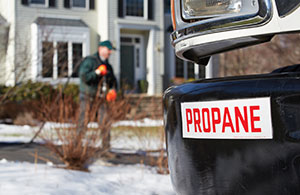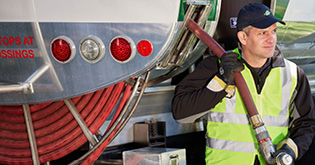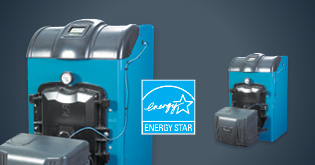- My Account:
- Sign In
- Register
- Make Payment
Sales 877.359.2151
Service 973.366.3100
Sales 877.359.2151
Service 973.366.3100
Why choose propane?

Propane is one of the world’s most efficient sources of energy. That's why millions of Americans use about 18 billion gallons of it every year, to heat homes, heat water, cook food, dry clothes and run vehicles economically and efficiently.
Check out some of the many great reasons why propane is the first choice as a fuel source for comfort needs:*
- Propane is economical and efficient
Virtually anything in your house, restaurant or building that can run on electricity can run on propane. However, a propane-fueled home is less costly to operate than an electric home. The costs of electricity and propane can be compared using the BTU (British Thermal Unit), which measures the heating value of each fuel. National fuel prices from the U.S. Department of Energy show that the cost of electricity is more than twice the cost of propane. For the same heating value, propane therefore offers remarkable savings over electricity. - Propane is readily available
Since propane is created from natural components, natural gas and petroleum, it is readily available here in the United States. In fact, almost 90% of the propane that is used in the United States is produced right here. Since propane is able to become liquid under pressure, it's an energy source that can be used virtually anywhere! So it can be used and transported to many different areas, such as areas beyond the reach of natural gas mains, wherever you live. - Propane is plentiful and will continue to be
As efforts are made to reduce gasoline consumption by 20%, propane is the smart alternative. Increasing the use of this affordable fuel in fleets by just 10% could displace one billion gallons of gasoline by the year 2017, delivering a significant portion of the displacement goal. - Propane is convenient to use and store
We can deliver it right to your home. Propane tanks are environmentally friendly, require little maintenance, and can last up to 40 years. Propane's portability in liquid form makes it a convenient fuel for grilling, camping, and other uses. Up to 56,000 miles of pipeline and more than 6,000 retail dealer locations make propane readily available throughout the United States. - Propane is environmentally-friendly
Propane has long been recognized as the "green" energy. Using propane, homeowners can help cut emissions and protect the environment. Propane is an approved alternative fuel listed in both the Clean Air Act of 1990 and the National Energy Policy Act of 1992. Propane is nontoxic and insoluble in water. Because it is released as a gas, it doesn't spill, pool, or leave a residue. Propane exhaust creates 60-70% less smog-producing hydrocarbons than gasoline, according to studies by the Southwest Research Institute. It cuts emissions of toxins and carcinogens like benzene and toluene by up to 96%. - Propane is safe
Propane has a very strong safety record, due in large part to the stringent codes and regulations developed by the propane industry and the National Fire Protection Association (NFPA). As with any energy source, there are steps you should take to further ensure your safety.
Make sure to read our propane Safety & Handling tips and information here - How can I recognize a propane leak in my home?
Propane has a strong, unpleasant smell, like rotten eggs, a skunk's spray, or a dead animal. Propane manufacturers add the smell deliberately to help alert customers to propane leaks, which can create a safety hazard. You can ask your propane retailer for a demonstration to help everyone in your home or building identify leaks. - What should I do if there's a problem with a propane appliance?
Never attempt to modify or repair a propane appliance's valves, regulators, connectors, controls, or a propane tank's cylinder or parts yourself. Instead, immediately call your propane retailer or a qualified service technician. They can inspect, adjust, repair, or replace any part of your propane system. Remember, your propane system incorporates special components to keep them safe for use. - What is a pilot light?
Many propane appliances may have a pilot light-a small, constantly burning flame inside the appliance (appliances without a pilot light often have electronic ignition instead.) If your appliance has a pilot light, it is an important safety feature. The pilot light ignites the main burner when needed. - What should I do if my pilot light goes out?
The Propane Education & Research Council (PERC) recommends that you get in touch with a qualified propane service technician to evaluate the appliance and relight the pilot light, which is a small, constantly burning flame inside the appliance that ignites the main burner. A pilot light that repeatedly goes out — or is difficult to light — may be signaling that there is a problem with the appliance or your propane system. Accidents and serious injuries can occur when customers attempt to fix a pilot light problem on their own. - What assurance do I have that propane technicians are properly trained?
Propane is used safely by millions of Americans — and stored, handled, and transported by thousands of professionals — every day. That safety comes from a combination of stringent codes and regulations and our industry's extensive training and safety awareness programs. In fact, the Propane Education & Research Council (PERC) and the National Propane Gas Association (NPGA) operate the Certified Employee Training Program (CETP), through which propane technicians train and get certified in all aspects of delivering propane and installing and servicing propane appliances. We update our training programs frequently to ensure that our technicians are equipped with the most current procedures and information available. - Can we convert a natural gas furnace to propane?
Yes. Many furnaces originally built for natural gas can be converted to propane. Contact us today to learn more! - Are there alternatives to having a propane tank in my yard?
Yes. An underground storage tank is an option for single-family homes and housing developments. These large tanks can be buried underground because propane is a nontoxic fuel that doesn't contaminate aquifers or soil. - If I use propane as my primary energy source, what size storage tank do I need?
Generally, a 500-gallon tank can hold enough propane to meet the annual energy needs of an average four-bedroom home. Tanks of 1,000 gallons or more may be needed for large homes with swimming pools and hot tubs. We can help you determine exactly which size of tank you need to suit your specific needs.
*Source: www.usepropane.com



.jpg?sfvrsn=ba81b4e4_1)
.jpg?sfvrsn=43a0195a_3)